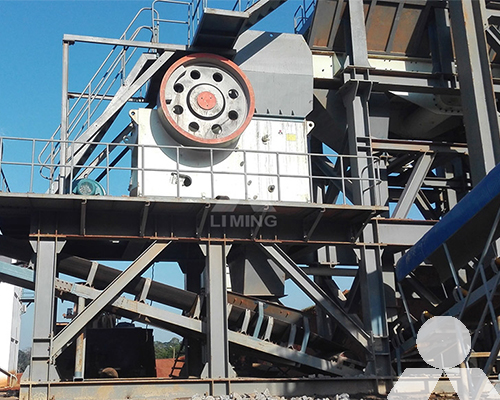What is the difference between jaw crusher and hammer crusher?
Jaw crushers and hammer crushers are two of the most common types of crushers used in the mining and construction industries. Both crushers use mechanical force to break down large pieces of material into smaller pieces, but they do so in different ways.
Jaw crushers use a simple principle of compression to break down material. The crusher has two jaws, one fixed and one movable. The movable jaw moves back and forth, squeezing the material between the two jaws. The force of the compression breaks the material down into smaller pieces.

Hammer crushers use a more complex principle of impact to break down material. The crusher has a rotating shaft with a series of hammers attached to it. The hammers strike the material, breaking it into smaller pieces.
Here is a table that summarizes the key differences between jaw crushers and hammer crushers:
| Feature | Jaw crusher | Hammer crusher |
|---|---|---|
| Working principle | Compression | Impact |
| Type of force | Static | Dynamic |
| Type of movement | Reciprocating | Rotating |
| Typical applications | Primary and secondary crushing | Secondary and tertiary crushing |
| Typical material types | Hard and soft materials | Soft materials |
| Typical output size | 1-100 mm | 0.1-25 mm |
| Typical energy consumption | Low | High |
Jaw crusher are typically used for primary and secondary crushing, which means that they are used to break down large pieces of material into smaller pieces. They are well-suited for crushing hard and soft materials, and they can be used to produce a wide range of output sizes. Jaw crushers are also relatively energy-efficient.
Hammer crushers are typically used for secondary and tertiary crushing, which means that they are used to break down smaller pieces of material into even smaller pieces. They are well-suited for crushing soft materials, and they can produce a very fine output size. Hammer crushers are also relatively energy-intensive.
The best type of crusher for a particular application will depend on the following factors:
- The type of material that needs to be crushed
- The desired output size
- The available space
- The budget
In general, jaw crushers are a good choice for crushing hard and soft materials, while hammer crushers are a good choice for crushing soft materials.








